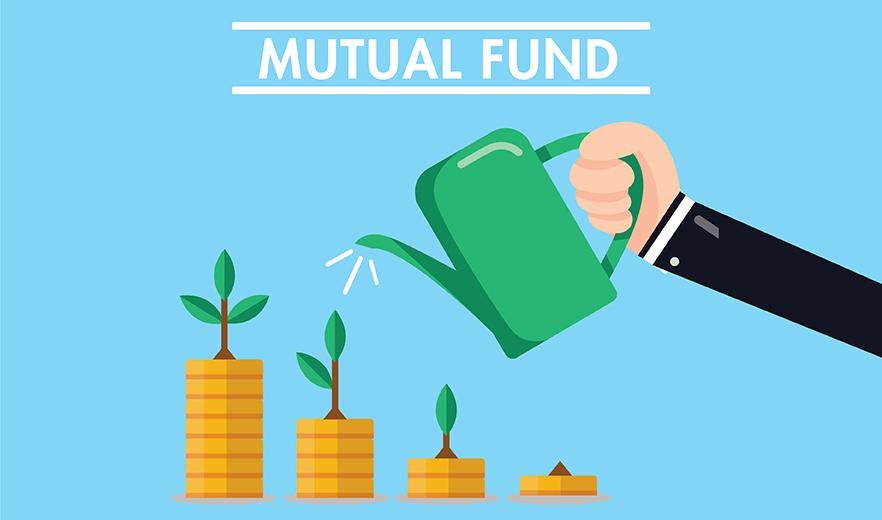Introduction: The Reason Why Americans Are Choosing Funds.
Investment in financial markets is easier to access in 2025 than before. As the inflation factor, the increasing interest rates and the increase in the unpredictable swings of the stock markets raise their concerns, Americans are seeking safe but at the same time profitable methods to increase their wealth. Exchange-Traded Funds (ETFs) and Mutual Funds are considered to be among the most popular investment vehicles.
The two alternatives enable investors to invest their funds on a diversified portfolio which is professionally managed. Nonetheless, the discussion of ETFs versus Mutual Funds – which one is better in 2025? is taking an increasing relevance as individuals demand efficiency, flexibility and higher returns. The features, benefits, advantages, and disadvantages, and important distinctions of the two will be discussed in this blog, and one will be able to choose the option that best suits his or her financial objectives.
What Are ETFs? (Features & Benefits)
-
- The ETFs (Exchange-Traded Funds) are investment funds that are traded in the stock exchanges just like stocks. They aim at following the performance of a particular index, sector, commodity or a commodity class.
-
Key Features of ETFs:
- Traded Like Stocks: The ETFs can be bought or sold in the market during market hours and at real time prices.
- Diversification: You can use one ETF that will expose you to hundreds of companies of different industries.
- Low Cost: ETFs tend to have lower cost ratios than mutual funds.
- Transparency: The holdings of an ETF are announced every day thus the investor knows what they own.
- Tax Efficiency: ETFs are designed in such a manner that they are more tax efficient as compared to mutual funds.
Benefits of ETFs in 2025:
- Perfect when selecting an investment that is easily diversified to an inexperienced investor at a low cost.
- The increasing variety of thematic ETFs (such as AI, renewable energy, and tech ETFs) allows it to be easier to target certain industries.
- Appealing both to long term investors and short term traders.
- ETFs have recently added bond ETFs, real estate ETFs, and international ETFs that are appropriate in all risk levels.

What Are Mutual Funds? (Features & Benefits)
Mutual Funds combine funds of many investors to invest in a holding of stock, bonds or any other security. Professional fund managers actively manage these funds in a bid to beat the market.
Key Features of Mutual Funds:
- Actively Managed: An investment manager is a manager who makes investment decisions on behalf of investors.
- End of Day Pricing: In contrast to ETFs, mutual funds are only traded once a day, after the market is closed.
- Diversity of Funds: There are equity funds, bond funds, balanced funds and money market funds.
- Automatic Investing: Many Americans invest in mutual funds in retirement plans (401(k), IRA) in order to make investment easy, hands free.
- Long History: Mutual funds have been in existence since decades and it is a trusted investment option.
Benefits of Mutual Funds in 2025:
- Professional management is applicable to investors who do not want to make investment decisions daily.
- Good for long term investors who believe in discipline and stability.
- Less complex to combine with employee-related plans and retirement plans.
- It is appropriate to investors who are less risk-averse and who seek more gradual growth.

Pros & Cons of ETFs
Pros of ETFs:
- Low fees and expense ratios.
- The flexibility of real-time trading.
- Extensive investments (stocks, bonds, sectors, international).
- Liquid, i.e. easy to sell or buy.
- Better than a mutual fund in terms of taxes.
Cons of ETFs:
- May assess trading charges by broker.
- It is too tempting to trade regularly, and this adds risk.
- Certain funds in the niche ETFs are very volatile.
- In some markets passive ETFs could perform poorly as opposed to actively managed funds.
Pros & Cons of Mutual Funds
Pros of Mutual Funds:
- Proactively run by professionals striving to win the market.
- Retirement accounts (401(k), IRA) are convenient.
- Reduced temptation to over-trade as pricing is daily.
- Best long-term, disciplined investors.
Cons of Mutual Funds:
- Increased cost ratios and administration costs.
- Less efficient in taxation than ETFs.
- Absence of flexibility – trades are only executed at end of day NAV.
- Reduced openness than ETFs.
- May does not perform well despite the increased fees.
Which Option Is Better in 2025?
Which is better, ETFs or mutual funds, is a decision that depends on your financial objectives, risk tolerance and investment style.
ETFs are better in 2025 if:
- You need inexpensive investing and the greatest flexibility.
- You like trading apps, such as Robinhood, Fidelity, or Vanguard.
- You are addressing certain sectors (AI, green energy, tech).
- You want more tax efficiency.
Mutual Funds are better in 2025 if:
- You are concerned with retirement savings and want to be hands off investors.
- You appreciate the active management of the profession.
- You are making a long-term investment and do not require trading on a daily basis.
- You desire a stable, slow growth policy.
Nevertheless, based on the predictions of 2025, ETFs are becoming increasingly popular due to their reduced fees, increased flexibility, and transparency. Most Americans are even substituting mutual funds in their portfolios with the ETFs. Nevertheless, mutual funds continue to dominate the retirement accounts by religious tradition and automatic contribution programs.
Conclusion
Both ETFs and the Mutual Funds will continue to be a profitable investment choice of Americans in 2025. The appropriate option will be based on your own financial plan:
- ETFs are preferable in case you are interested in low fees, flexibility, and transparency.
- Mutual funds could be more appropriate in case you want to be professionally managed and have a long-term retirement plan.
In the current market, the ETF is the more preferred investment tool since the investors enjoy diversification, cheaply and conveniently, thus making the ETF a winning edge over other investment tools, to most modern investors. Nevertheless, ETFs and mutual funds can be incorporated in a balanced portfolio, based on your objectives.
Summation: No matter which form you use, ETFs, mutual funds, or a combination of both, all that will make you successful in 2025 is to continue doing it, diversify successfully, and keep the price down.
Frequently asked questions (FAQs).
Q1: Will the ETF be safer than Mutual Funds in 2025?
A: Both the ETFs and the Mutual Funds have market risks. Nonetheless, ETFs are less expensive and more open in nature, and tax efficient and many investors alike will be drawn to them in 2025. Long-term retirement accounts might be safer on mutual funds since they are run professionally.
Q2: Which will produce better returns in 2025 ETFs or Mutual Funds?
A:The returns are relative to the market and performance of the fund. Generally speaking, an ETF would perform better in the long-run since their cost is lower and the actively managed mutual funds would perform better under certain market conditions.
Q3: Is it possible to invest in ETFs as a means of retirement?
A:Yes. ETFs are currently in popular use in 401 (k) and IRA. Cost-saving and flexibility are some of the reasons why many Americans are moving away mutual funds to ETFs to plan their retirement.
Q4: Is it still worth having Mutual Funds in 2025?
A:Yes, mutual funds are not out of place. They are still great alternatives to retirement accounts and to the investors who want to have the accounts under professional management and to be a hands-off investor.
Q5: Which is cheaper, ETFs or Mutual Funds?
A:ETFs are also generally cheaper as they are less expensive in terms of expenses ratio and less hidden costs. Mutual funds tend to have high management fees.
Q6: Do novices invest in ETFs?
A:Absolutely. ETFs are friendly to beginners since they are relatively cheap, can be purchased via the app, such as Robinhood, Vanguard, and Fidelity, and immediately diversify.
Q7: Is it advisable that I invest in ETFs and Mutual funds?
A:Yes. Both of them can be in a balancing portfolio. ETFs are flexible and economical and mutual funds are long term disciplined and managed professionally.



